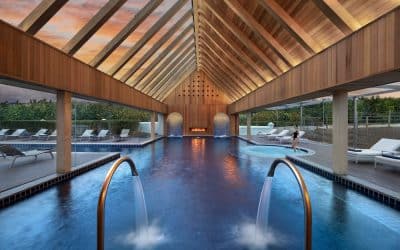
SALT of Palmar Brings a New Destination to Design Hotels
Following SALT of Palmar’s successful launch in 2018, it is excited to announce its partnership with Design Hotels as the first Member Hotel in Mauritius.
Marking a new destination on the Design Hotels map, SALT of Palmar has defied local expectations ever since it opened in 2018. “We’re thrilled to welcome SALT of Palmar to our community,” says Jenni Benzaquen, Senior Vice President and Managing Director of Design Hotels. “This conscious hotel not only marks our first destination in Mauritius—an island that offers unending opportunities for exploration and local engagement—but it also embodies much of Design Hotels’ ethos through its bold interior design and its conscious connections with the local community.”
“We are delighted that SALT of Palmar is the first resort in Mauritius to partner with the renowned Design Hotels. It is a like-minded collaboration, grounded on the passion for genuine hospitality, cultural authenticity, and intriguing design and architecture. Rooted in sustainability and a humanistic approach to hospitality, SALT connects modern explorers with meaningful travel experiences. This artful and wellbeing-inspired resort takes the culturally curious to local people – not just places, and into the very heartbeat of the destination,” says Paul Jones, SALT of Palmar’s Original and Chief Executive Officer of The Lux Collective, the global luxury hospitality group that currently manages 16 hotels and resorts around the world, including SALT.
A gem just east of Madagascar in the Indian Ocean, this remote African island echoes with calls of exotic birds, fish, and tropical plants. Mauritius’s magic not only lies in its unparalleled natural beauty but also its incredible mix of African, Indian, Chinese, and French cultures. To explore the wild side of the island, travellers should head east, where SALT of Palmar is located and where the coast unfurls in traditional villages, swathes of raw beachfront, sugarcane fields, mangroves, and lagoons. In the coastal village of Palmar, white sand and sapphire waters are backdropped by old Indian silk saris ruffling in the wind, acting as makeshift fences between small plantations growing chilis and vegetables.
With all of these sights in mind, Mauritius-born and based architect Jean-François Adam renovated the hotel’s existing structure, which was originally built in the style of a traditional Moroccan riad. “We had to bring these natural elements into the interiors,” he says. “We reoriented all the beds to face the sea, and we redesigned the pool for a better connection to the beach.”
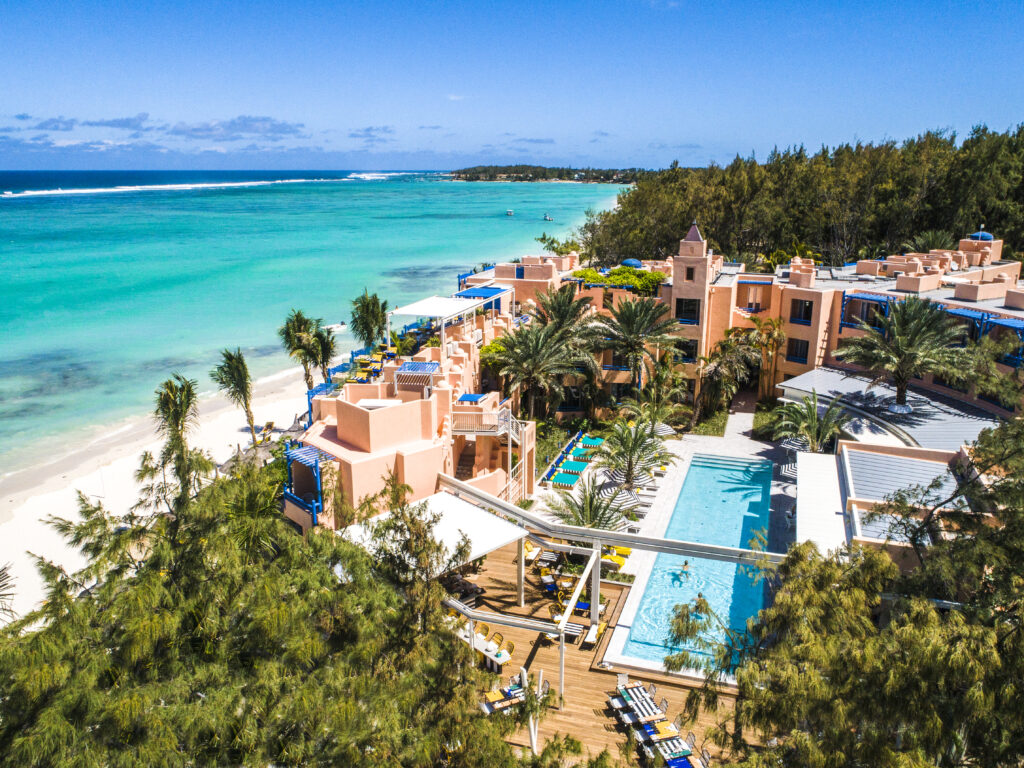
Similarly, artist Camille Walala brought the essences of the island into the interior design concept: “I was blown away by the vibrant colours around the island. People paint their houses in the most amazing tones that really stand out against the emerald green of the plants and the ever-changing colours of the sky,” she says. “I wanted to marry these tones with my signature pop colours.” As a result, the bright hues of the houses dotting the island—as well as the pinks of the awe-inspiring sunsets and greens of surrounding palms and sugarcane fields—appear everywhere across the property. The façade is painted peach with royal blue accents, the daybeds are a vibrant turquoise with orange piping, and even the beach towels are canary yellow. Camille also worked with an extraordinary range of artisans—lovingly referred to as the hotel’s “SaltShakers”—on the island to develop the entire range of furnishings at the hotel. Everything from the woven chairs by the pool to the rug in the library to mosaic tables, cushions, and sunbeds are bespoke. The hotel maintains close relationships with all the SaltShakers, and guests are invited to participate in workshops at their ateliers.
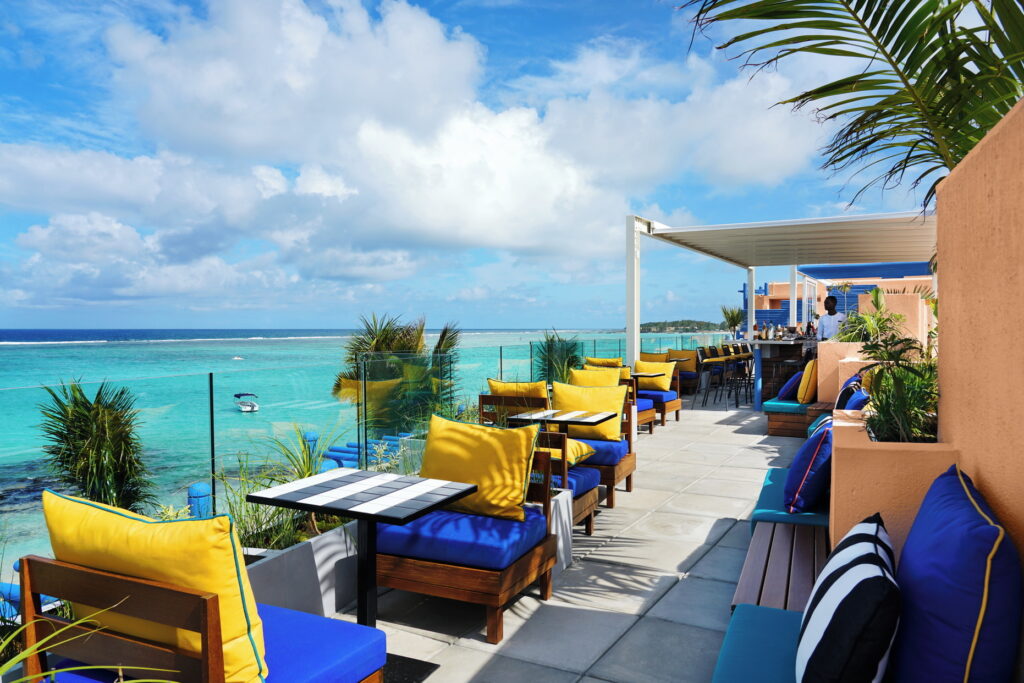
Another highlight is SALT of Palmar’s onsite restaurant, The Good Kitchen, which has earned a reputation as a destination dining outlet that draws visitors and local Mauritians alike. It was one of the first places on the island to offer locally rooted yet globally inspired cuisine that caters to a variety of palates, with a menu including traditional Mauritian dishes as well as vegan and raw interpretations thereof. One standout is a contemporary take on “biriyani”: here, the traditionally meat-heavy rice dish is made instead with cauliflower. Also worth mentioning is the salt-baked fish: freshly caught fish is poached in seawater and served in a coconut broth. Every item on the menu is crafted from the freshest local produce available, and the only imported ingredients are those that cannot be grown on-island. Likewise, on the à la carte breakfast menu, everything is made from scratch—from kombuchas to peanut butter to jams to flaky pastries that were first conceived in partnership with Du Pain et des Idées, a famous Parisian bakery, and adapted to incorporate local fruits like papaya and pineapple. Each of the hotel’s three bars—located on the beach, at the pool, and on the rooftop—has a distinct identity with its own menu of cocktails and alcohol-free drinks inspired by the sea, land, and mountains of Mauritius.
In comparison to the rest of the hotel, the 59 guestrooms are more subdued to promote restful sleep. But playful splashes of colour are still found in features like fiery orange-red chairs and similarly hued tiled showers, plants in painted ceramic pots, and black-and-white striped cushions. Every room is equipped with a custom mattress by Carpe Diem, a company founded by a Swedish chiropractor, a bespoke guidebook and small selection of books by local authors, a beach basket made from recycled plastics by local artisan Reotee Buleeram, and refillable, all-natural toiletries. Natural products are also used in treatments at the hotel’s intimate spa, SALT EQUILIBRIUM, which also has a salt room for halotherapy. Complimentary movement activities, such as sunrise/sunset yoga classes, serenity beach walks, and beach volleyball, are frequently offered alongside more socially mindful events like workshops on food scrap regrowth and how to make bath fizzes.
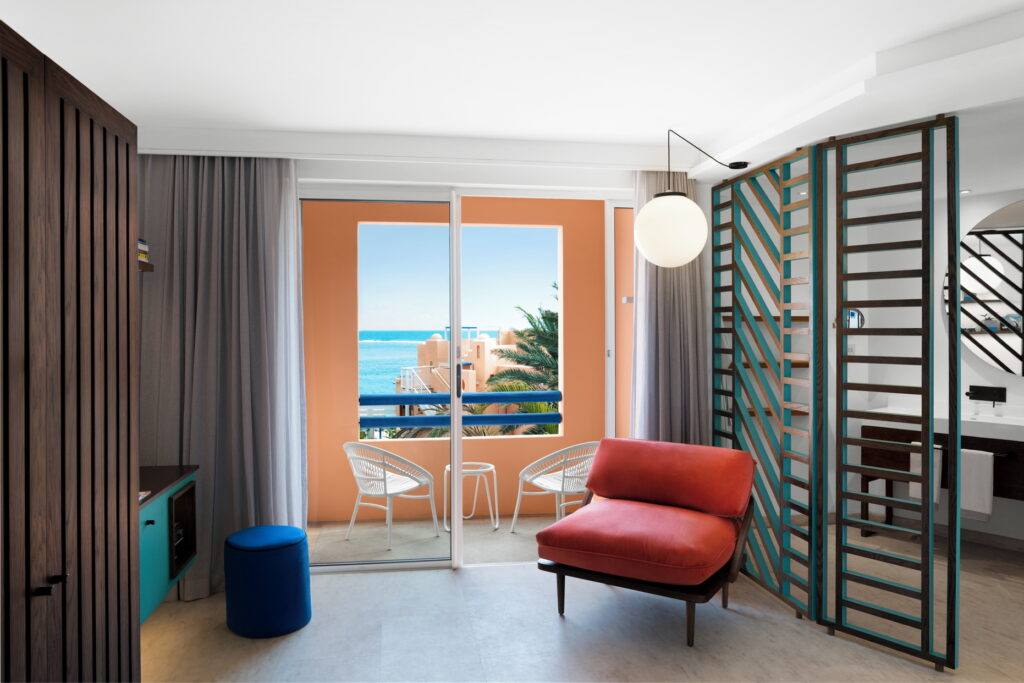
Outside of the hotel’s own walls, maintaining a strong connection with and giving back to the local community is an integral part of SALT’s expansive ethos. The hotel supports the nearby Laventure Technical School for Disabled and also organises the “Skill-Swap Programme”, which offers guests the opportunity to share their skills and talents with the local community, and vice versa. Previous exchanges have included a visiting interior designer giving local school children a class on art and a hairdresser teaching students about different ways to plait hair. An international journalist once gave a full-day writing session to aspiring writers, while an IT specialist conducted courses for departmental heads and a pastry chef taught SALT team members the art of patisserie. In turn, these guests each participated in enriching workshops held by SaltShakers: Janine Espitalier Noel hosts pottery workshops; artist Dani Volbert gives painting classes; Selva Chinan offers the experience of planting vanilla; and the hotel’s own team members teach guests Mauritian sega dancing. SALT of Palmar also shares technical skills with local students on a quarterly basis and invites them to the hotel for yearly lunches and activity days. A sponsorship programme for students’ education and nourishment is also managed by the hotel and supported by guests’ contributions.
Destination
After visiting the island in 1896, Mark Twain wrote, “You gather the idea that Mauritius was made first and then heaven; and that heaven was copied after Mauritius.” At only 61 kilometres long and 45 kilometres wide, this island is known for secluded beaches and verdant hills infused with rich culture and heritage: the delectable cuisine simmers together seemingly disparate flavour profiles; signs along roads are often written in English and at times, in French, Hindi, and Chinese.
Palmar, specifically, is a village on the east coast of Mauritius nestled between Belle Mare and Trou d’Eau Douce, and SALT of Palmar is located on a miniature peninsula between two bays with calm turquoise waters. Nearby are destinations like the Flacq Market, the island’s largest outdoor market with vendors offering everything from fabrics and clothing to food to handicrafts, while the fishing village of Trou d’Eau Douce is known for its corrugated iron huts, mazes of picturesque streets, and friendly inhabitants. The hotel is a 50-minute scenic drive from the Sir Seewoosagur Ramgoolam International Airport.
To discover more and for reservations, visit SALT of Palmar on designhotels.com.



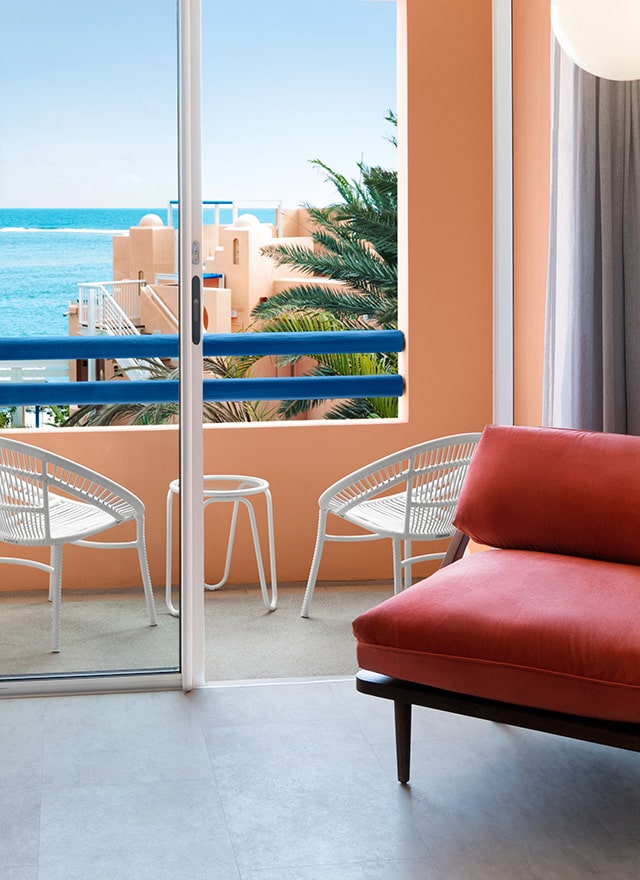
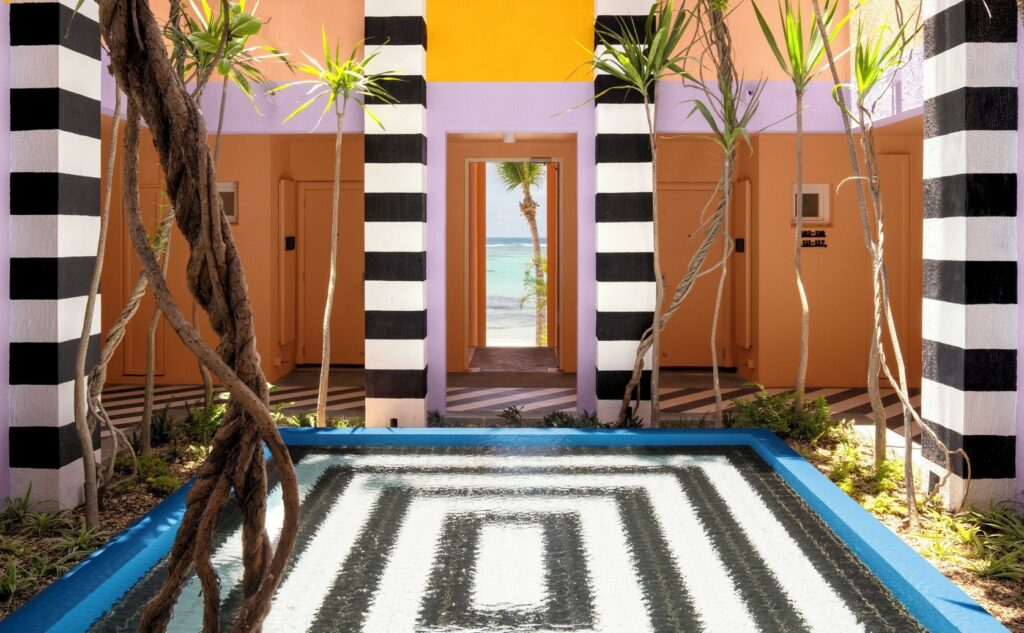
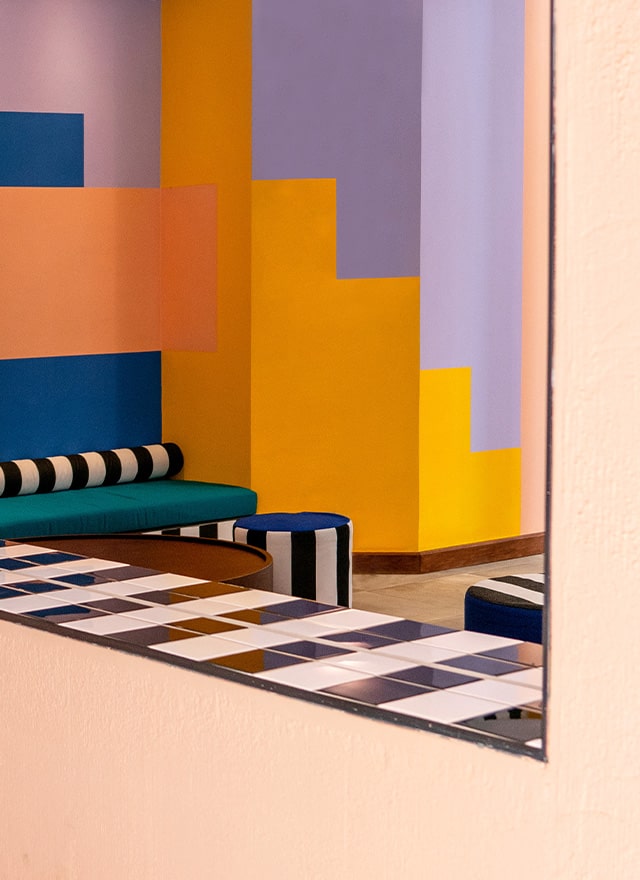
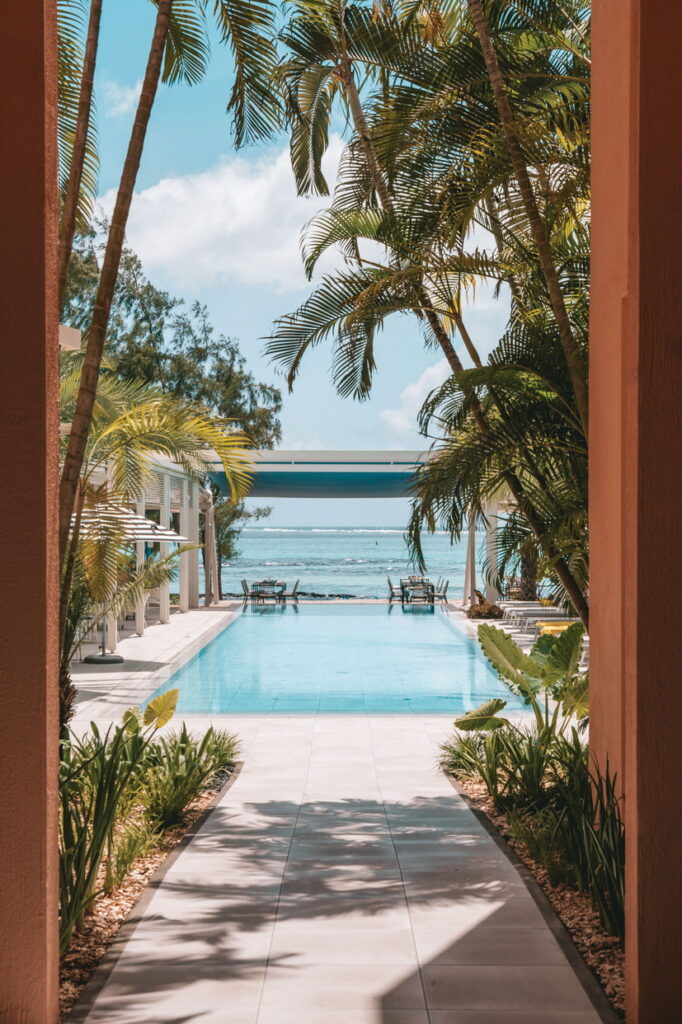
Related Articles
Related
LUX* Belle Mare: Feasting on Authenticity
A tapestry of flavour at the re-launched LUX* Belle Mare As LUX* Belle Mare opened its welcoming arms once more, revealing an exquisite revival post its temporary closure, it is almost a serendipitous event that the charming property reopened its doors on 1st October...
SA businesses have a duty of care to protect themselves and clients from phishing
Cybersecurity threats are continuously on the increase, with 96% of phishing attacks delivered by email. A successful phishing attack leaves two victims in its wake: the person who falls for the requests or promises of the perpetrator and the company whose domain has...
The Babylonstoren Spa: Inside Out. Outside In.
The new spa is a breathing space for a discerning spa visitor who has been there and done that. A travel feature by luxury travel content specialists, www.luxurytraveleditor.comMore is more; less is more. A great contradiction currently exists in luxury where expense,...



